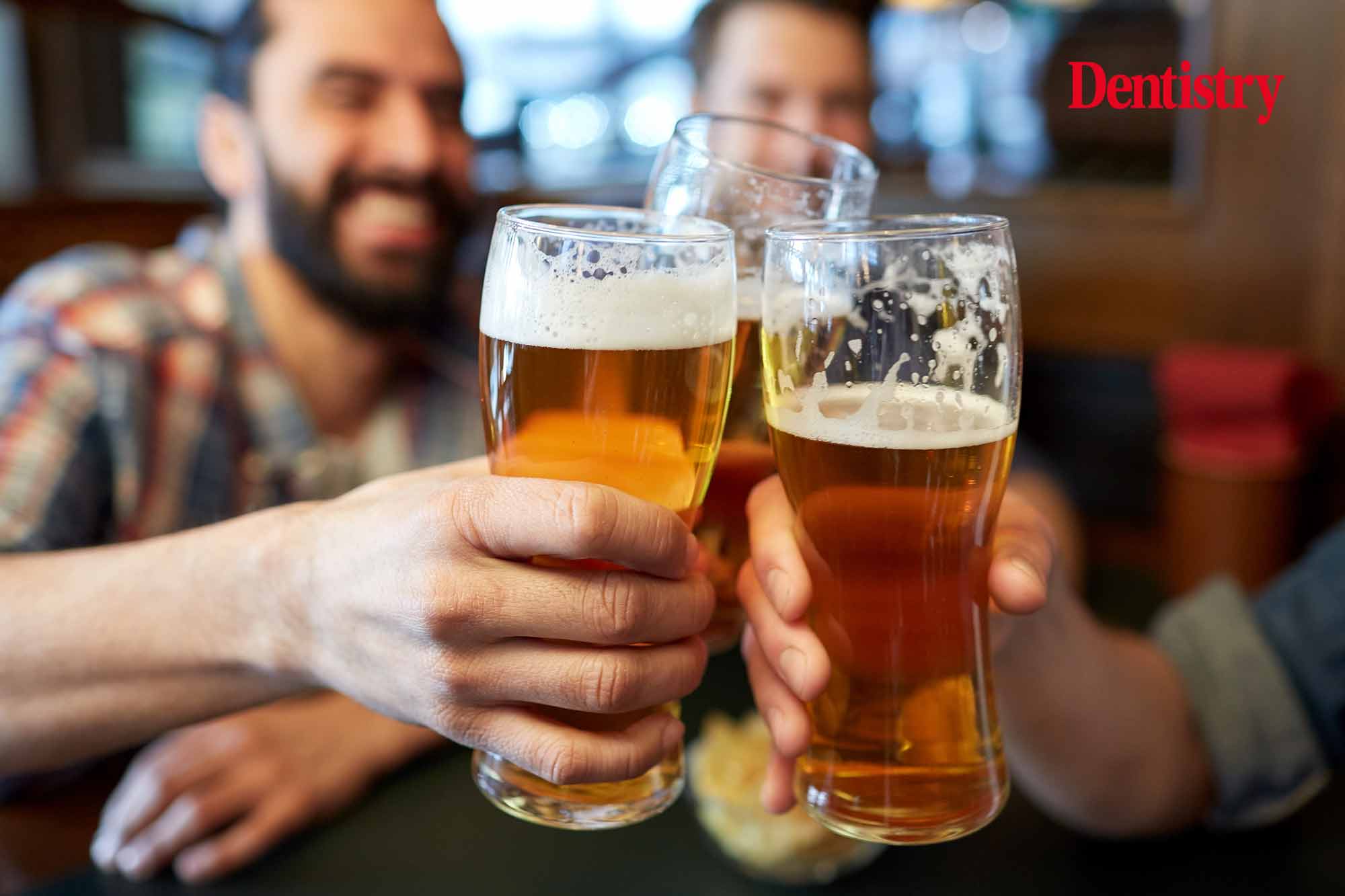
This Sober October, Amy Mesilio Peralta discusses the impact of alcohol on oral and mental health, and the importance of advising your patients on alcohol intake.
‘Bottomless brunches’ and ‘after-work drinks’ are the social highlight of ones stressful working week.
Alcohol, as we all know, has a wide range of health impacts such as cardiovascular disease, liver disease and cancer. However, the way in which we consume alcohol is often overlooked in dentistry as I feel patients tend to disregard or underestimate the effect it may have on their mouths.
Therefore, educating patients and reinforcing the significance of ‘safe’ alcohol consumption is paramount when targeting today’s social norms. It is also important to be aware that the frequency of consumption increases our risk of oral cancer and other diseases.
How does alcohol impact our oral health?
Alcohol alone does not directly damage your teeth, but it can significantly impact them and your oral health status in several ways.
The most common and immediate link between alcohol and oral health is xerostomia, also known as ‘dry mouth’. Alcohol is a diuretic resulting in dehydration, also causing irritation to the soft tissues such as the cheeks, gums and throat and both resulting in reduced saliva flow.
Saliva plays an important role in maintaining a healthy mouth as it acts as a buffer to bacteria and helps maintain a healthy PH for tooth tissue. If we imagine having a dry mouth, we tend to describe the feeling as if the mouth and tissues become sticky.
Subsequently, I ask my patients to imagine more bacteria being stuck to the teeth and unable washed off. This is why there is a higher prevalence of tooth decay in patients with a high alcohol consumption. In addition, an increased amount of sugar exposure is contributed by fancy cocktails.
Some mouthwashes have a small percentage of alcohol in them. Alcohol, even in small doses and when combined with patients lifestyle, can cause erosion to healthy tooth tissue because of the high acidic environment it creates in the mouth. I personally advise my patients against using mouthwashes containing alcohol, as I often find that their mouths always appear drier and have a higher percentage of tooth erosion.
This is especially due to the fact that patients will be rinsing with mouthwash straight after brushing. Spit don’t rinse!
The psychological impact of alcohol
There is also the doubtless psychological effect alcohol has on one’s motivation and mood. Heavy alcohol consumers gravitate to being less motivated about their oral hygiene regime or, unfortunately, too intoxicated to remember. This can result in an increased risk and prevalence of gum disease as well as an increased amount of accidents that result in facial trauma due to high intoxication levels.
One particular patient of mine fractured both his front teeth on two separate occasions as a result of having one too many drinks at the weekend.
The biggest concern of regular alcohol consumption is when it is done in conjunction with tobacco smoking, as it increases the risk of developing oral cancer exponentially. It is therefore crucial to draw attention to these two high risk habits as they go hand in hand with many patients not understanding the correlation, and many of them being ‘social smokers’.
Controlling alcohol intake
The standard advice we offer around alcohol intake is based on the amount of units we recommend an average patient should consume. But what exactly is a unit of alcohol?
One unit of alcohol is 10ml or 8g of pure alcohol. I tend to explain this to my patients by saying that half a pint of regular beer is one unit, and this is the amount of alcohol your liver can safely digest in one hour.
Knowing this, what advice should we provide as dental professionals? We recommend 14 units of alcohol per week, and to be spread over a few days, rather than being consumed in one night. This can also be a common misconception for the social drinker who only drinks an alcoholic beverage once a week.
Drinking alcohol once a week with friends in a social gathering could actually be worse than having a glass of wine three times a week by yourself, but this view can be controversial.
To conclude, I feel encouraging patients to enter campaigns such as Sober October gives them the opportunity to experience first hand for themselves the difference not drinking alcohol can have on all aspects of their health not just oral, and hopefully motivate them to create a much healthier lifestyle.
Read more on this Sober October:
- The problem of alcohol misuse in dentistry
- Government takes action to promote alcohol-free and low alcohol drinks
- Liver cancer deaths ‘soaring’ due to alcohol and obesity
- Opening up conversations about alcohol intake.
Follow Dentistry.co.uk on Instagram to keep up with all the latest dental news and trends.


